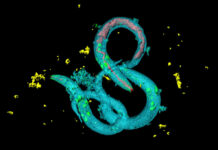
The unintended consequences of Canada’s Medical Assistance in Dying (MAiD) law are raising profound ethical and societal questions.
Story Snapshot
- MAiD was legalized in Canada in 2016, yet recent trends indicate it may be more than a compassionate choice for some.
- Reports reveal that inadequate health care may be pushing vulnerable Canadians toward choosing assisted suicide.
- The alarming increase in MAiD cases among those with disabilities and unmet health needs highlights systemic gaps.
- Debates continue over the potential expansion of MAiD eligibility to include mental illness as the sole criterion.
Unveiling the Troubling Trend
Canada’s journey into legalized euthanasia began with the 2015 Supreme Court decision that decriminalized assisted dying, culminating in the 2016 legalization of MAiD. The law was initially intended for individuals with a grievous and irremediable medical condition, whose natural death was reasonably foreseeable. However, the rising number of MAiD cases, particularly among individuals with disabilities or chronic conditions, suggests a correlation with unmet health needs. In 2023 alone, MAiD accounted for 4.7% of all deaths in Canada, a significant increase from previous years.
The expansion of MAiD eligibility criteria raises ethical and policy questions. The safeguards meant to protect vulnerable populations have not materialized as expected, leading to a disturbing trend where assisted suicide becomes a last resort for those unable to access adequate care.
Lack of adequate health care pushing Canadians toward assisted suicide – LifeSite https://t.co/udDAJVO1jF
— Ted Rorrer (@tedrorrer) November 17, 2025
Debate Over Expanding MAiD Eligibility
The Canadian government faces mounting pressure as it considers further expanding MAiD eligibility to individuals with mental illness as the sole criterion. The introduction of Bill C-218 aims to halt this progression, sparking heated debates among legislators, advocacy groups, and the public. Proponents of MAiD argue for patient autonomy, while critics warn of a slippery slope, where the vulnerable are pushed toward euthanasia due to systemic failures in health care and social support.
Disability rights organizations and medical professionals express deep concerns about the ethical implications of expanding MAiD. The tension between upholding individual autonomy and protecting vulnerable groups highlights the need for a balanced approach that prioritizes improving health care access and quality over expanding euthanasia eligibility.
Watch:
Impact on Vulnerable Populations
The rapid increase in MAiD cases among individuals with disabilities and chronic illnesses reflects broader inadequacies in Canada’s health care system. Concerns grow over whether these individuals feel coerced into choosing MAiD due to a lack of viable alternatives. The Cardus report underscores the failure of safeguards, suggesting that many MAiD recipients have unmet health or social care needs, which may be driving their decisions.
The ongoing debate over MAiD expansion and its ethical ramifications presents a critical juncture for Canadian society. Strengthening health care and social supports is crucial to ensure that vulnerable groups are not left with assisted suicide as their only option. As the discussion unfolds, the focus must remain on enhancing the quality and accessibility of care, rather than broadening eligibility for MAiD.
Sources:
Catholic Register
CKOM
Dordt University
Health Canada
Dying With Dignity Canada


















